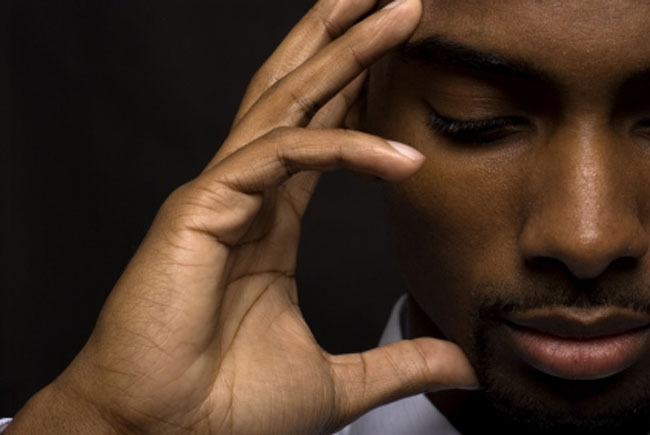Antidepressants Don't Stop All Symptoms of Disease

Even patients who appear to have a successful response to antidepressants may not experience total elimination of depression symptoms, a new study suggests. Some of the most common persisting symptoms include insomnia, sadness and decreased concentration.
Study participants reported three to 13 residual symptoms of depression even if their antidepressant treatment was considered effective, said study researcher Shawn McClintock, a clinical neuropsychologist at University of Texas Southwestern Medical Center.
Plus, 75 percent of all study respondents said they experienced at least five or more symptoms of depression despite treatment, McClintock said.
"This was eye-opening to us, that these symptoms still persist," McClintock told MyHealthNewsDaily.
Persistence of sad mood, for example, was surprising because that is one of the hallmark symptoms of depression, he said. Of the participants in the study, 71 percent reported sadness despite treatment with medication.
The study shows that doctors need to pay attention to what isn't being treated with the first-line antidepressant, McClintock said, and should consider other options besides drugs to treat those symptoms.
The study was published in the April issue of the Journal of Clinical Psychopharmacology.
Sign up for the Live Science daily newsletter now
Get the world’s most fascinating discoveries delivered straight to your inbox.
Persisting symptoms
McClintock and his colleagues analyzed data from 2,876 people who took antidepressants called selective serotonin reuptake inhibitors (SSRIs), the most common kind of antidepressant, for 12 weeks. The data was from the six-year STAR*D study, the largest-ever study of people diagnosed with major depression.
People in the study self-reported their depression symptoms using measurement-based techniques so that doctors and researchers could evaluate the severity of their symptoms.
Researchers found that among people taking antidepressants for their depression, 71 percent reported sadness, 70 percent reported decreased concentration and diminished decision-making skills and 79 percent reported some form of insomnia.
In fact, the number of people who reported having "moderately severe" insomnia was more than double that of people reporting other symptoms, with 60 percent reporting the symptom, the study said.
Researchers also discovered that thoughts of suicide were extremely rare in the study population, the study said.
Other options
The study shows that there is hope for people who may not respond to just one kind of antidepressant, McClintock said.
"We don’t want the helplessness to be there," he said. "If these are the symptoms that are remaining, let's work collaboratively with doctor and patient."
Besides drugs, there are also other options to help reduce symptoms of depression, McClintock said. A doctor could also choose to have the patient undergo psychotherapy or encourage more exercise and better sleep hygiene (turning off the lights before bed, and no working in bed).
"There are always different options, and that's one of the things the paper highlights," McClintock said. "If one medication isn’t working, as in this case, don’t give up hope, because there are many other options that can be done."
Pass it on: Antidepressants may not cure all symptoms of depression, and patients who experience persisting depression symptoms should talk to their doctors about their treatment options.
Follow MyHealthNewsDaily staff writer Amanda Chan on Twitter @AmandaLChan. This story was provided by MyHealthNewsDaily, a sister site to LiveScience.











